Participation of woman in the Irish Farmers’ Association (IFA) was the subject of much conversation at last year’s Woman and Agriculture Conference and we are looking forward to hearing from the IFA on what has happened since. In 2017, the National Council of the IFA approved a proposal to establish a group to look at measures that could be taken to enhance the involvement of women in the organisation.
While an estimated 74,000 women work on Irish farms (27% of the agricultural workforce), only 6% are registered clients with Teagasc and only 12% of Irish farmers in receipt of DAFM payments are women. According to Teagasc research “farm women contribute to a range of activities. They have a high level of involvement in farm administration and management, but also a high level of engagement in technical farm management, particularly with more involvement in animal husbandry”.
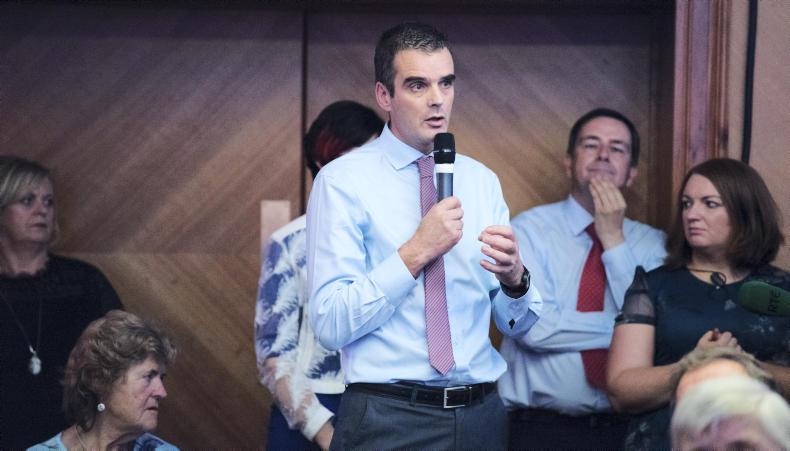
IFA president Joe Healy answering questions at the conference. \ Barry Cronin
IFA committee
IFA president Joe Healy initiated the start of this journey by appointing me as chair of the committee. The committee also comprises of the five female county chairs, the Farm Family & Social Affairs chair, Caroline Farrell, and a number of outside representatives.
The IFA president said: “Women play a major role in Irish agriculture, participating in a full range of farming activities. It is very important to me that the Association captures this often under represented voice. Increasing women’s involvement within the Association will present a more balanced picture of modern family farms as well as better recognise the contribution of women farmers to the sector, which will have a positive impact on policy development”.
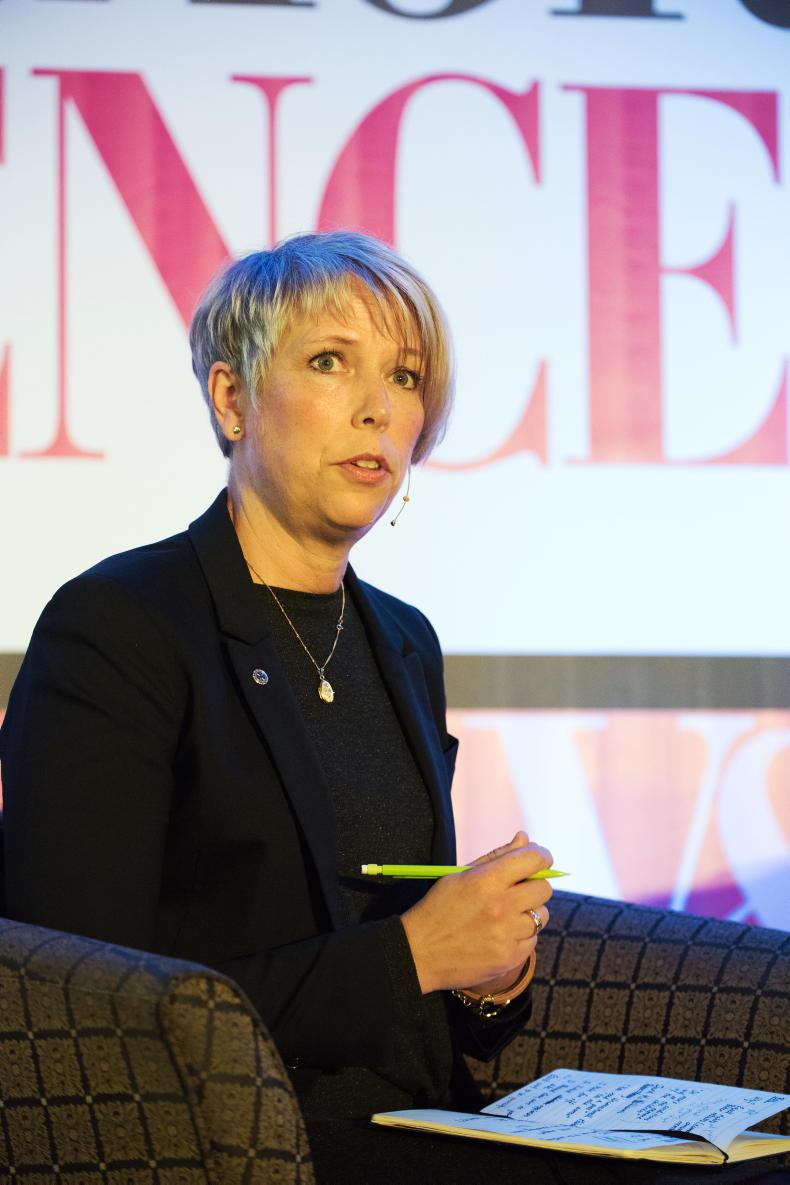
Helena Jonsson, the former president of the Federation of Swedish Farmers. \ Barry Cronin
Objectives
The first objective of the committee was to gather data on what roles woman currently play in the organisation. You can see from the statistics that currently 20% of the officers at county level in IFA are women.
A survey drawn up by the committee and launched at the 2018 Ploughing Championships received a very positive response. The objective of this study is to get feedback from people that live and work on farms across Ireland, to build a picture of the possible barriers to involvement and to provide recommendations on how best to support women to get involved in the association.
Caroline Farrell said: “Women play a major role in Irish agriculture, participating in a full range of farming activities. However, women are often under-represented amongst the elected leadership of national level farming organisations. It is hoped that the survey in combination with desk research within IFA will provide information on the barriers to advancing women’s roles inside & outside the farm”.
Analysis showed that only 7% of those that took up young leaders training in IFA were female. It is very important that the views of younger people living and working on farms are captured. Macra and the colleges are assisting the work of the committee by encouraging members and students to complete the survey online also.
Another objective is to make viable recommendations to the board of the IFA that, if implemented, will support more diverse participation in the organisation. This is important to the future of the organisation as diversity has been shown to improve decision making processes, financial returns and communications.
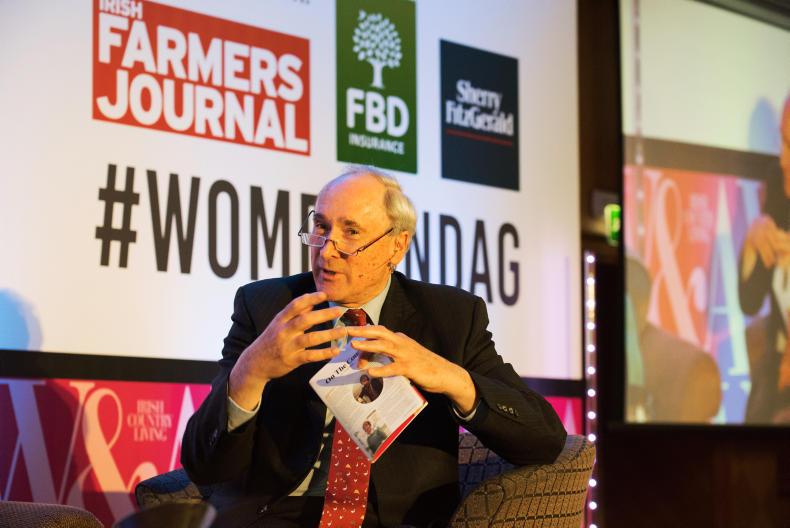
Women and Agriculture conference, Mount Wolseley Hotel, Tullow, Co Carlow. The On the Couch session hosted by Matt Dempsey .\ Barry Cronin
Women in Ag conference
The results of the survey will be presented at the Woman and Agriculture Conference in late October. A panel discussion will also be held and we want to hear your views on the day. We intend to present the final recommendations to the IFA National Council in December 2018.
To have your say go to: https://www.surveymonkey.com/r/3P7NP83, and fill out the survey.
The survey will be open until Friday, 5 October 2018.
Similar research carried out for the Scottish Government by Laois woman Professor Sally Shortall showed that if women were enabled to play a more substantial role, they could potentially contribute, among other benefits:
New ideas for diversification and for adding value to existing businesses. A good understanding of consumer needs and preferences. Novel ideas for innovation that move beyond the traditional or “the way that things have always been done”, eg an approach to the design of the farmyard, farm equipment and other resources that relies less on brawn, and would benefit not only women but ageing farmers and those with disabilities or health issues. Clearer and fairer communication within farming families about issues such as succession planning, inheritance and resources.
Participation of woman in the Irish Farmers’ Association (IFA) was the subject of much conversation at last year’s Woman and Agriculture Conference and we are looking forward to hearing from the IFA on what has happened since. In 2017, the National Council of the IFA approved a proposal to establish a group to look at measures that could be taken to enhance the involvement of women in the organisation.
While an estimated 74,000 women work on Irish farms (27% of the agricultural workforce), only 6% are registered clients with Teagasc and only 12% of Irish farmers in receipt of DAFM payments are women. According to Teagasc research “farm women contribute to a range of activities. They have a high level of involvement in farm administration and management, but also a high level of engagement in technical farm management, particularly with more involvement in animal husbandry”.

IFA president Joe Healy answering questions at the conference. \ Barry Cronin
IFA committee
IFA president Joe Healy initiated the start of this journey by appointing me as chair of the committee. The committee also comprises of the five female county chairs, the Farm Family & Social Affairs chair, Caroline Farrell, and a number of outside representatives.
The IFA president said: “Women play a major role in Irish agriculture, participating in a full range of farming activities. It is very important to me that the Association captures this often under represented voice. Increasing women’s involvement within the Association will present a more balanced picture of modern family farms as well as better recognise the contribution of women farmers to the sector, which will have a positive impact on policy development”.

Helena Jonsson, the former president of the Federation of Swedish Farmers. \ Barry Cronin
Objectives
The first objective of the committee was to gather data on what roles woman currently play in the organisation. You can see from the statistics that currently 20% of the officers at county level in IFA are women.
A survey drawn up by the committee and launched at the 2018 Ploughing Championships received a very positive response. The objective of this study is to get feedback from people that live and work on farms across Ireland, to build a picture of the possible barriers to involvement and to provide recommendations on how best to support women to get involved in the association.
Caroline Farrell said: “Women play a major role in Irish agriculture, participating in a full range of farming activities. However, women are often under-represented amongst the elected leadership of national level farming organisations. It is hoped that the survey in combination with desk research within IFA will provide information on the barriers to advancing women’s roles inside & outside the farm”.
Analysis showed that only 7% of those that took up young leaders training in IFA were female. It is very important that the views of younger people living and working on farms are captured. Macra and the colleges are assisting the work of the committee by encouraging members and students to complete the survey online also.
Another objective is to make viable recommendations to the board of the IFA that, if implemented, will support more diverse participation in the organisation. This is important to the future of the organisation as diversity has been shown to improve decision making processes, financial returns and communications.

Women and Agriculture conference, Mount Wolseley Hotel, Tullow, Co Carlow. The On the Couch session hosted by Matt Dempsey .\ Barry Cronin
Women in Ag conference
The results of the survey will be presented at the Woman and Agriculture Conference in late October. A panel discussion will also be held and we want to hear your views on the day. We intend to present the final recommendations to the IFA National Council in December 2018.
To have your say go to: https://www.surveymonkey.com/r/3P7NP83, and fill out the survey.
The survey will be open until Friday, 5 October 2018.
Similar research carried out for the Scottish Government by Laois woman Professor Sally Shortall showed that if women were enabled to play a more substantial role, they could potentially contribute, among other benefits:
New ideas for diversification and for adding value to existing businesses. A good understanding of consumer needs and preferences. Novel ideas for innovation that move beyond the traditional or “the way that things have always been done”, eg an approach to the design of the farmyard, farm equipment and other resources that relies less on brawn, and would benefit not only women but ageing farmers and those with disabilities or health issues. Clearer and fairer communication within farming families about issues such as succession planning, inheritance and resources. 







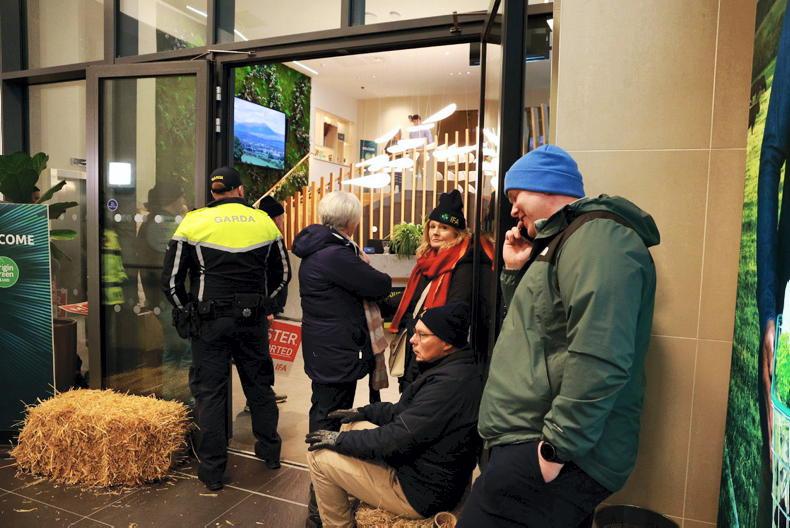

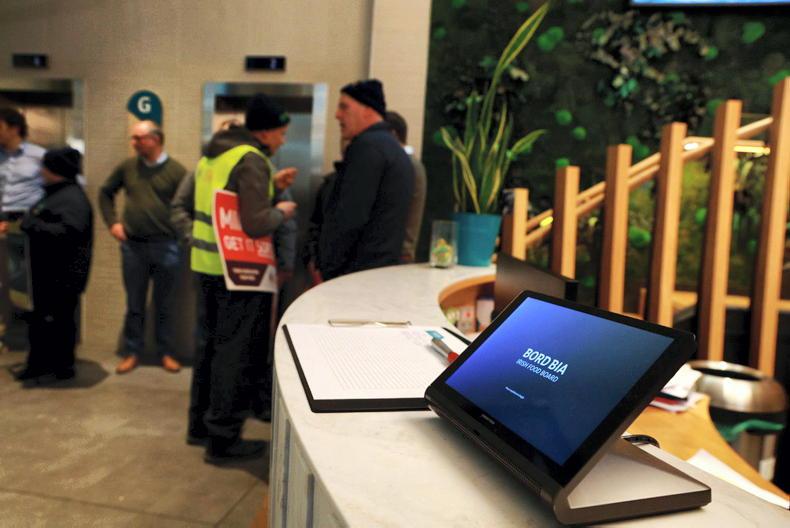
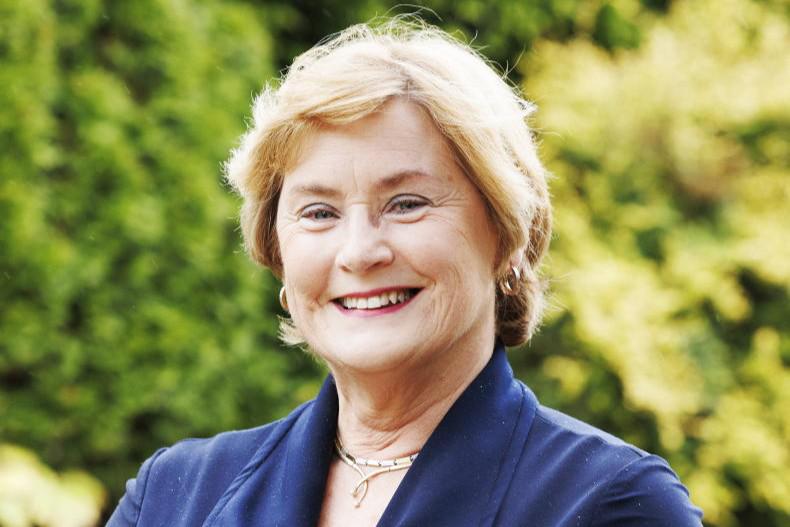
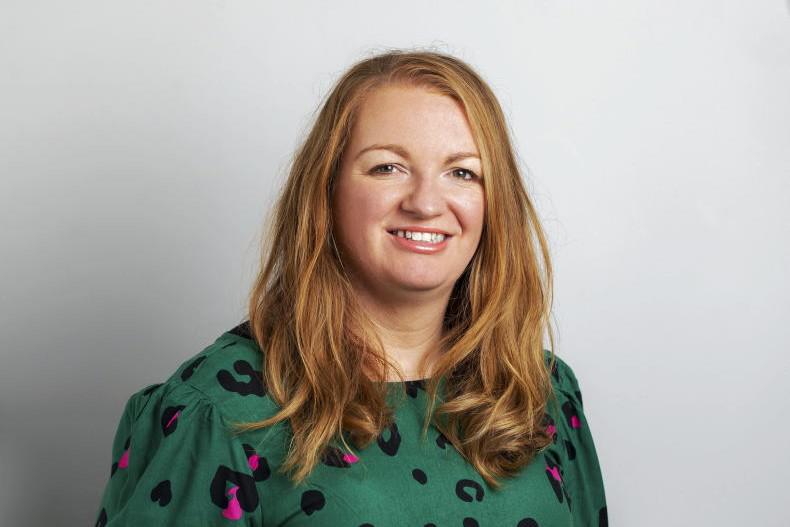
SHARING OPTIONS